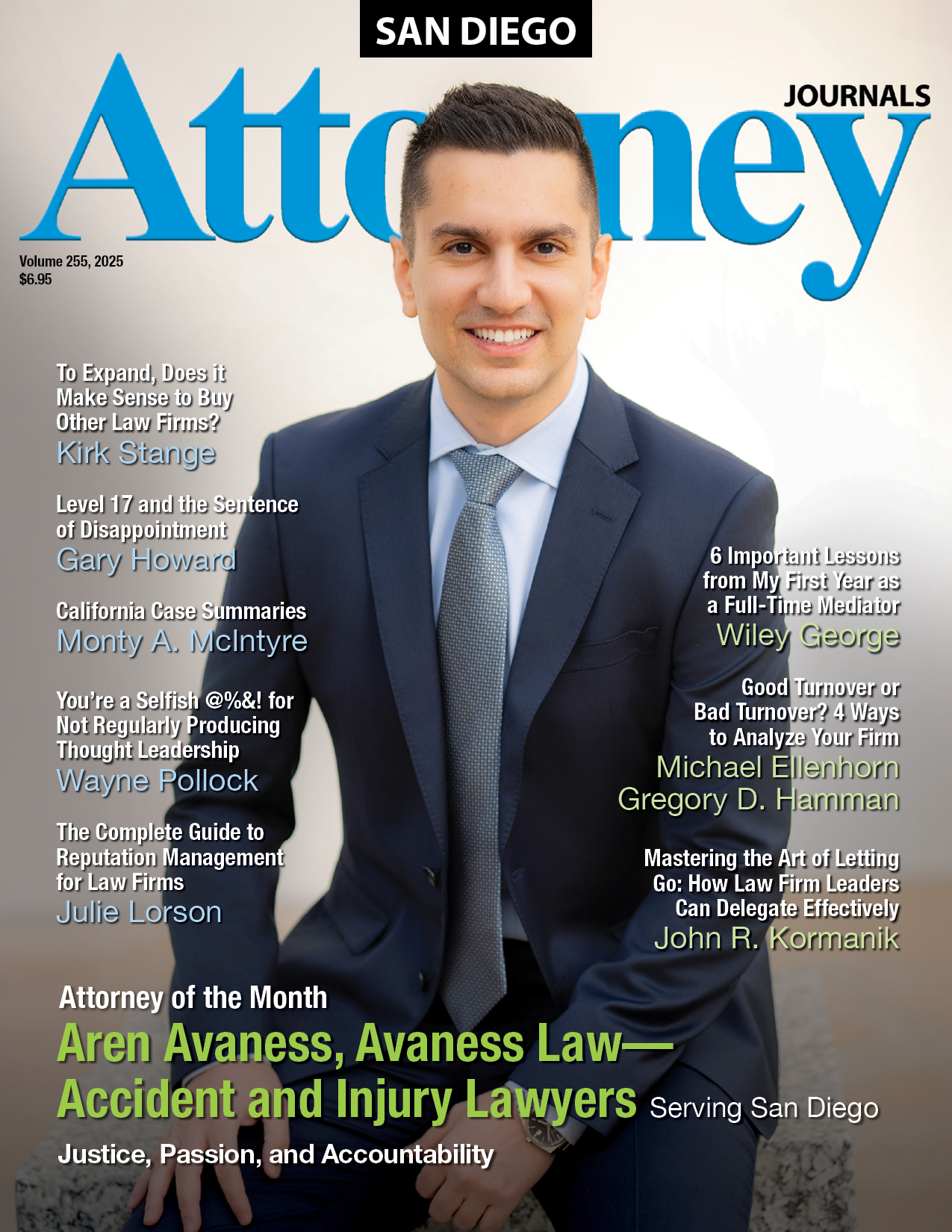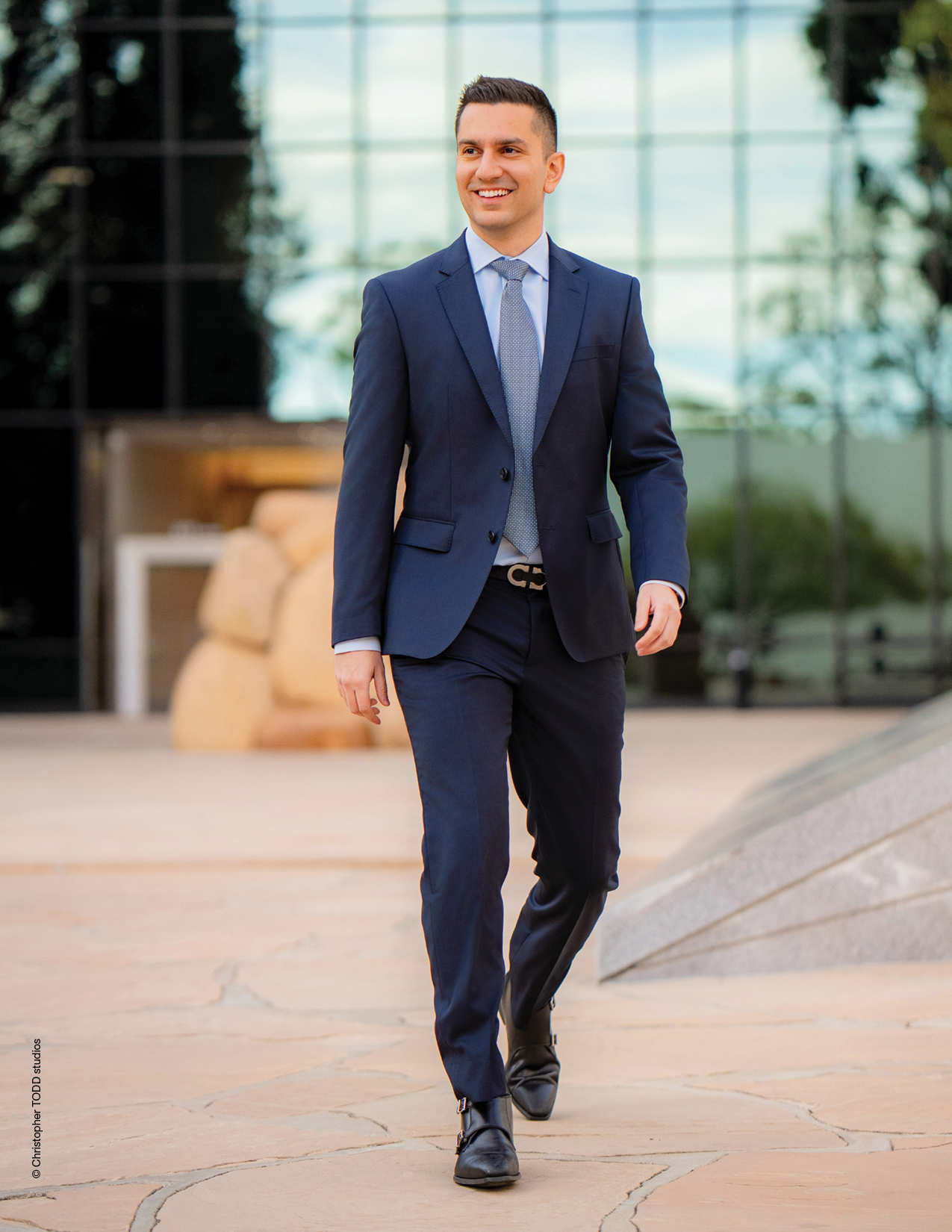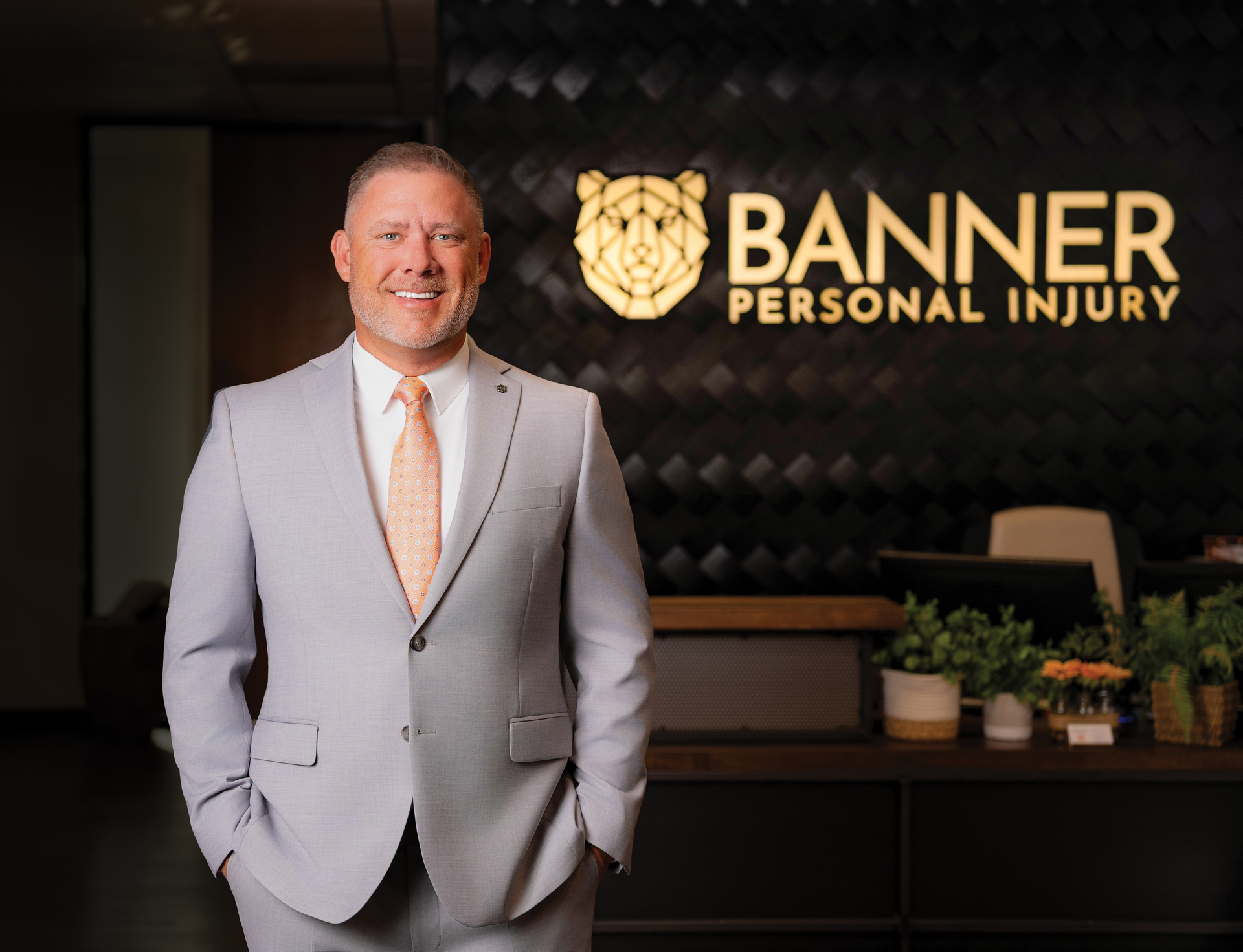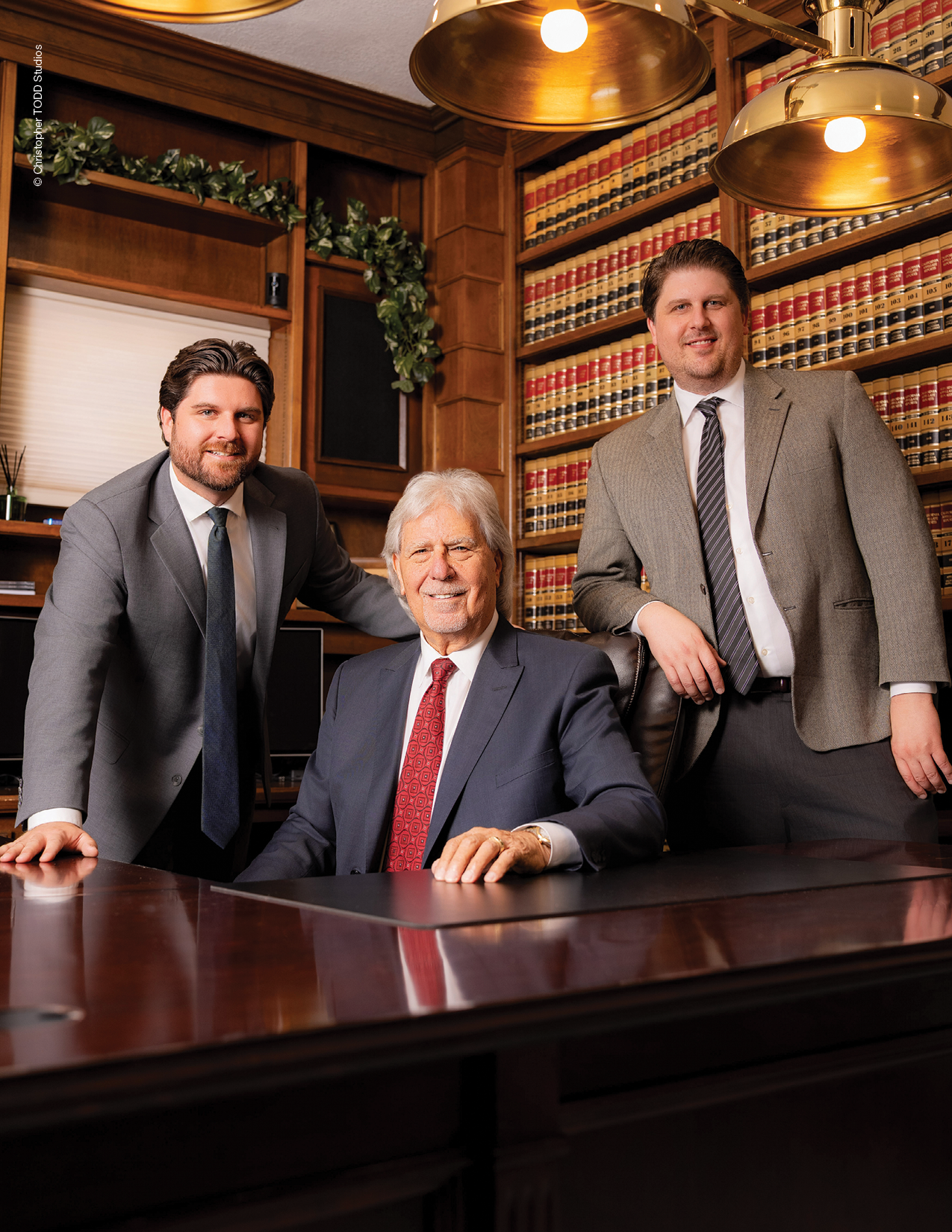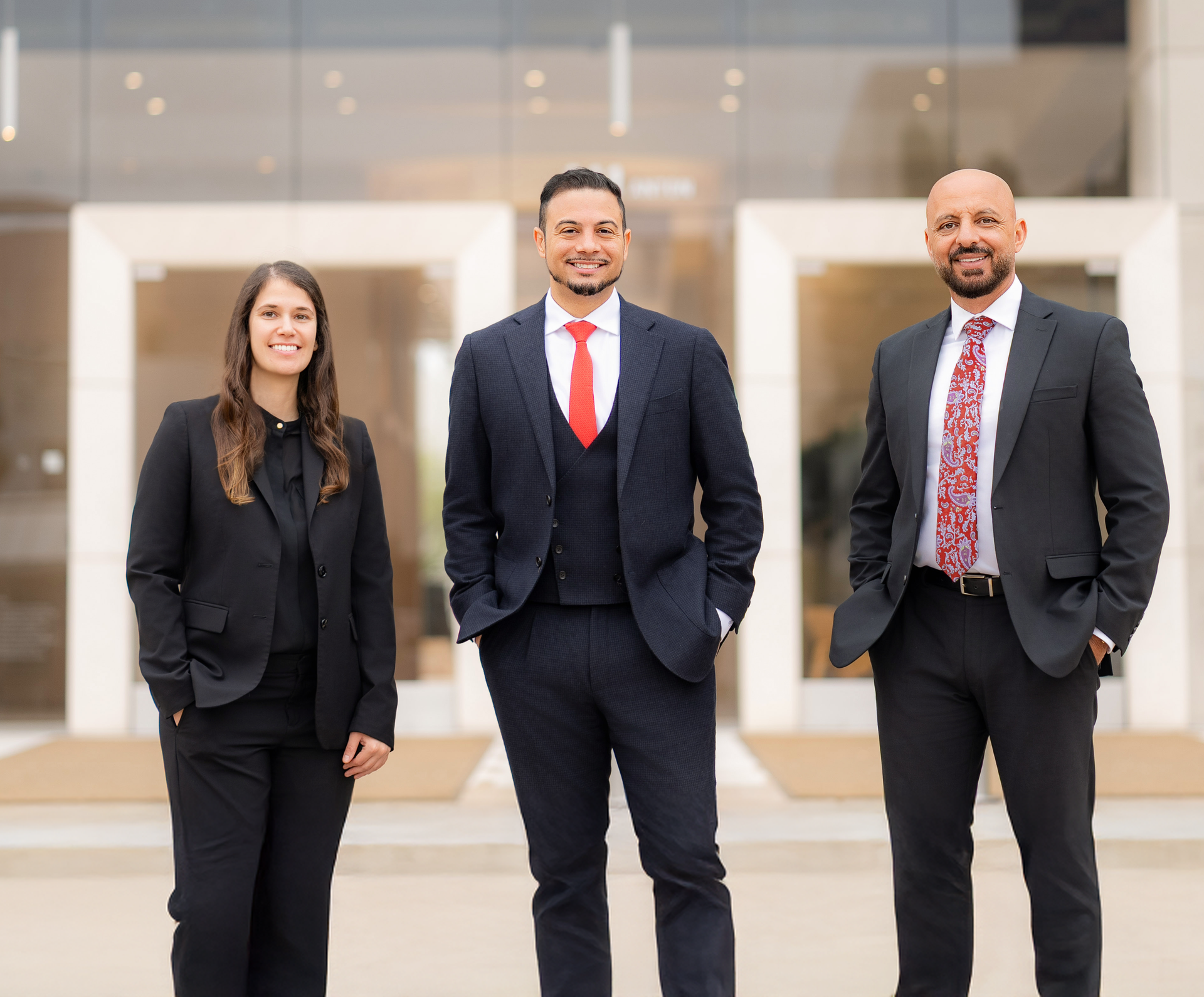Justice, Passion, and Accountability
Contact
Aren Mark Avaness
Avaness Law—Accident and Injury Lawyers
2600 W Olive Avenue
Suite 534
Burbank, CA 91505
How Aren Avaness Turned Hunger, Hustle, and Heart into a Thriving Law Practice
"What sets us apart is that I’m young. I’m hungry and because of that I’m always available for my clients. I spend more hours on a case than I get paid for, but I’m happy to do that because I’m building a brand. I’m building a firm. I litigate cases that maybe 90 percent of other firms won’t. And by ‘litigate,’ I mean we will invest serious time and energy on it,” says Aren Avaness, founder of Avaness Law.
December marks five years in business for Avaness. He currently employs two assistants and has plans for opening another office in 2025. The firm’s practice areas include assault and battery; auto, truck, motorcycle, and bus accidents; bicycle accidents; brain injury; dog bites; slip and fall; pedestrian accidents; sexual harassment; workplace accidents; and Uber/rideshare accidents. Avaness has a 99 percent success rate.
“In my office, an attorney touches every single case. It is not processed merely by the case manager or the assistant. There is an attorney overwatching every single case and making important decisions. This ultimately affects the result and outcome of the case because each case is specifically tailored to the specific client. The environment we have in my firm is, as long as you get the work done, everybody’s happy. I keep it nice with laid-back approach but one that gets the job done,” he says.
He cites numerous cases his firm has filed that on the surface do not make sense from a business perspective, cases other firms might settle too quickly. Avaness carefully manages the balancing act of being a successful businessman while at the same time providing legal services to those most in need. “Making money is essential and I am a good manager, but I’m in the business of making happy clients and making sure justice is served for my clients. Sometimes it’s not so economical, but our business hunger combined with our hunger for justice, it’s the right thing to do,” he says.
“Aren is a true professional. Not only did he do a great job with my case, but his follow-up when I needed documents, after the case was closed, was prompt and very helpful. I would highly recommend Aren to anyone looking for a trustworthy attorney.” —Hope Wakesho
Aren Avaness, Founder of Avaness Law
Putting a Premium on Accountability
Avaness says, “I fell upon becoming an attorney. I got lucky because I didn't choose it. It chose me. Coming here when I was ten years old, I fell in love with the idea of justice and accountability. Coming from Iran, those things were unheard of for me. I think my passion for the law comes directly from my personal experiences in a culture where people at fault are not held accountable.”
Avaness was born and raised in a country where values U.S. citizens take for granted are unheard of. He notes that he grew up in a country’s justice system driven by money, religion, or nationality. For example, a judge is permitted to find someone’s testimony more or less credible merely based on their religion. Coming to America and experiencing deeply rooted traditions of freedom of speech was an eye-opening experience. “In this great country, the norm is to strive for justice, equality, and accountability—no matter a person’s wealth, nationality, or religion. I learned to hold individuals accountable for their actions and fell in love with the idea of Justice. It is something that is ingrained in the American culture, and I take great pride in adopting such a view.”
For example, he says stores in the U.S. are held up to a certain standard to make sure that it's safe for their guests and their customers to come in and walk and shop—a fact many citizens do not appreciate. When someone walks into a store, he or she doesn’t have to automatically look down to make sure there’s not a slip and fall danger. The ability to comfortably shop or drive a car safely or use a product without fear of personal injury is a given here, but that simple act is not possible in other countries. Culturally, people aren't really held accountable. That's all designed by the judicial system's laws and regulations that are put into place with the statutes. People don't trust the process. “Here it's completely different. I'm not saying we're perfect, but at least the system we have is holding people accountable for their wrongdoings. Whether it's putting a product out there that they're not supposed to be doing, or whether it's them driving recklessly or doing something they're not supposed to be doing.”
Entrepreneurship comes naturally to Avaness. He grew up in a family of business owners and early in life observed and experienced some of the benefits of being your own boss. Instead of seeking employment in government or in some large firm, he elected to create his own business immediately after graduating from law school. His father had told him that people who do not take risks are the people who always end up working for someone else. The decision to go solo was, as he says, a “no-brainer.”
“Being your own boss opens up a world of almost unlimited possibilities each day. You get to design what you do and how you’ll do it. It’s up to you how, when, and where you choose to work. And, with no one ‘above’ you to hold you accountable, it can be tempting to slack off. For me, holding onto my passion has really been the key motivator. What sets me apart is my passion for seeking justice and holding others accountable for their wrongdoings,” he says.
A Demand for Accountability
Holding others accountable is a strain running throughout Avaness’s legal career. His commitment to accountability in pursuit of his client’s rights is exemplified in an automobile accident case in which the opposite party’s insurance company claimed his client was responsible due to changing lanes in traffic. The maximum amount the firm could possibly get for such a case was $25,000. Looking at the case from a purely financial position, the effort was not worth making. Legal fees could only amount to $8,000, which would not even cover his time.
Avaness chose to litigate the case, believing that his client was not at fault. Based on the point of impact in the accident, he was confident of his client’s innocence. He says, “I know my client was in her lane because I believe my client. Frankly, I know her. I believe her, and sometimes that's all you need. Honestly, I litigated this case because it irks me when people lie, like other parties lying about changing lanes.”
A Commitment to Listening
Genuine and sincere client communication is a hallmark of Avaness’s approach. “I want to put a face to the voice—mine and my client’s. I want to meet you. I want to listen to you. I want to see what you have to say. Clients do definitely feel heard with me. I do spend my time. It's just a higher quality service.”
His biggest case so far is an example. A client showed up after working with another firm. She was in a car accident and was injured by the airbag opening, which knocked her unconscious. The necessary surgery left her with repercussions that affected the rest of her life.
During his initial consultation, the woman began crying. She just went through a life-changing, traumatic injury, almost near death, and she was just treated like a file number at the other firm. “She just came to me and I talked to her for an hour and a half, and she just started crying. She said, ‘I just wanted someone to listen to me.’ When I connect with my clients like that, the sky's the limit.”
“If my client has a serious injury and tells me they can't take care of their family, I have to put a dollar amount of value on it. I have to seek compensation for that. To have a client like that, you have to sit there and talk to them.” After months of hard work, Avaness obtained a settlement offer in the high six figures.
Avaness enjoys the challenges of cases that are often complex and emotional. He truly loves litigating and one of his favorite tasks is handling depositions. “I love that. Just get to the bottom of the story. It's a time where I can sit down and ask the other party questions for eight hours, and I usually get to the bottom of it. Either I'm wrong about the value of the case, or they're completely lying and completely wrong. It's usually the other side that is trying to evade or not be responsible. I get to the bottom of it. Deposition is a great time to do that.”
Avaness combines his one-on-one approach with clients with use of the latest technology. For example, the firm uses ChatGPT, an artificial intelligence software that helps manage and process cases more efficiently and effectively. “As a young attorney, I have made it a priority that my office is not 100 percent digital-based, while also making sure that we are at the forefront of technology in working as efficiently and as fast as we can for the client. This results in processing and closing our cases much faster than the typical brick-and-mortar firm,” he says.
“Mr. Avaness provided legal advice and guidance during difficult circumstances for me. His morale brought calmness to the whole process. While working with Mr. Avaness, I felt as though my situation had hope, and he brought an inconceivable assurance for me.”—Tia
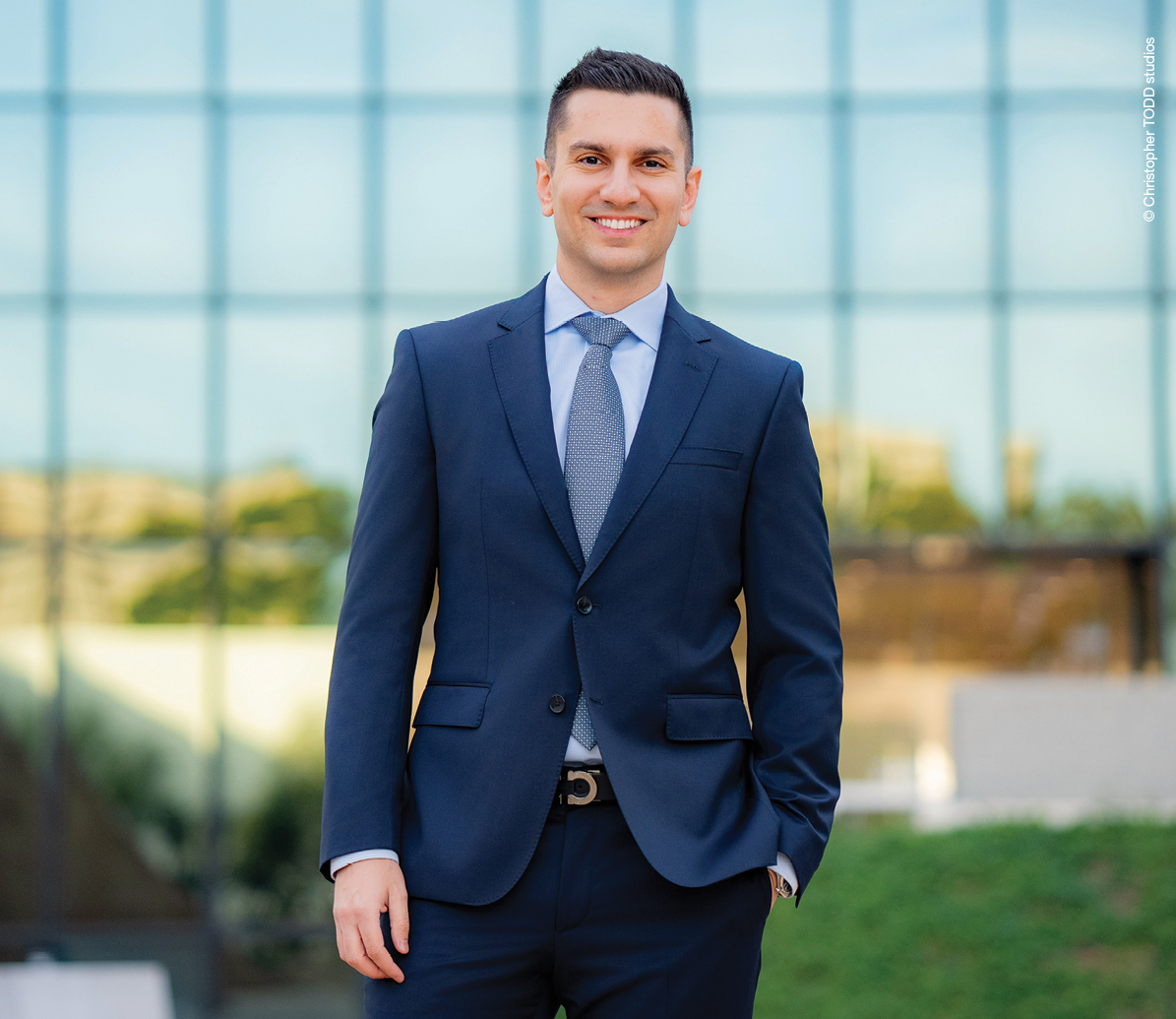
Aren Avaness, Founder of Avaness Law
Meanwhile, Outside the Office
Avaness loves sports and at one time played divisional paintball and basketball, which are his major hobbies today. He enjoys interacting with members of the small community of friends who play those sports in this area. He also makes time to work out in a local gym.
His reading habits generally focus on self-developmental books. He enjoys action/adventure television programs and one of his favorite movies is Gladiator. His music taste is eclectic and includes anything from country/western to R&B to hip-hop. “If it sounds good, I’m listening to it,” he says.
Avaness isn’t shy about saying he is a goofball who makes himself laugh often and out loud on a day-to-day basis. “I think I'm just lighthearted. On a regular weekend or after work, I'm pretty lighthearted, funny. I like to just have fun in life. I think I'm a positive thinker, and I definitely see the positive in things. I can just do my own stand-up comedy in front of the mirror any day. At work, I am a very serious and get the business done type of guy. But outside of work, I’m a pretty goofy and easy-going guy who loves being social and making connections.”
Looking Ahead to Expanding Entrepreneurship
Avaness credits much of his firm’s growth and the growth he has planned for the future on hiring the right team members. He calls it a game-changer. “I am more comfortable with overpaying an assistant who is the best than trying to cut corners and save money,” he says.
Another game changer is his strategic networking with individual attorneys and firms who are high-referring attorneys. He is continually increasing his online presence and face-to-face marketing throughout the city of Burbank and its surrounding areas such as North Hollywood and other cities. He also has plans to add five more attorneys and a significant number of case managers to the payroll.
The expected growth is based on his proven aggressive drive to succeed. “When I believe my client, I just go for it. I'm single. I'm young. I'm hungry. I think that's the competitive edge that clients really see when they come to me. They don't know that off the bat from the outside, but with the results we're able to achieve, they really see that,” he says.
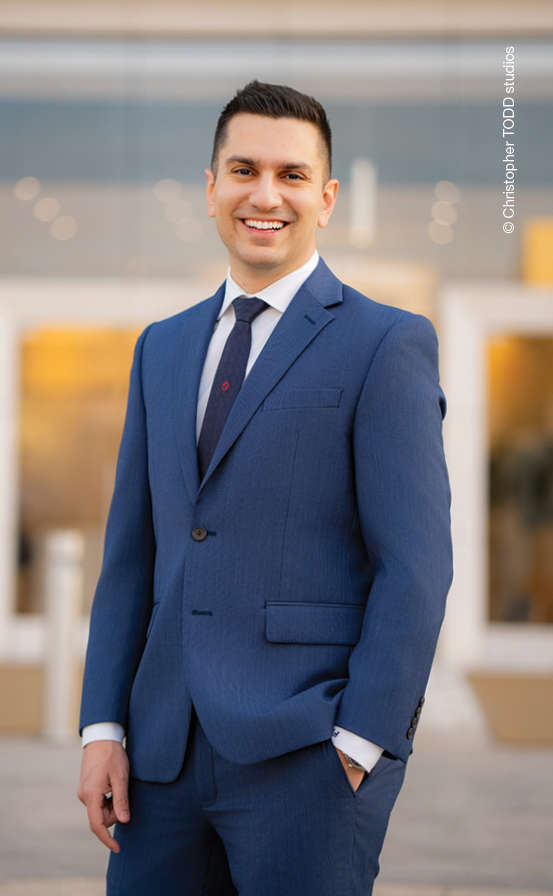
» Education
- University of California, Los Angeles (UCLA) Bachelors of Arts in English, Cum Laude
- Loyola Marymount University Law School, Los Angeles, Juris Doctorate
» Honors and Awards
- Voted Top 40 Under 40 by National Trial
Lawyers Association - Voted Rising Star by Super Lawyers
- Graduate of the honorable Trial Lawyer’s
College founded by Gerry Spence
» Professional Associations/ Membership
- Consumers Attorney Association of Los Angeles (CAALA)
- Armenian Bar Association
- American Bar Association
- Los Angeles County Bar Association (LACBA)

